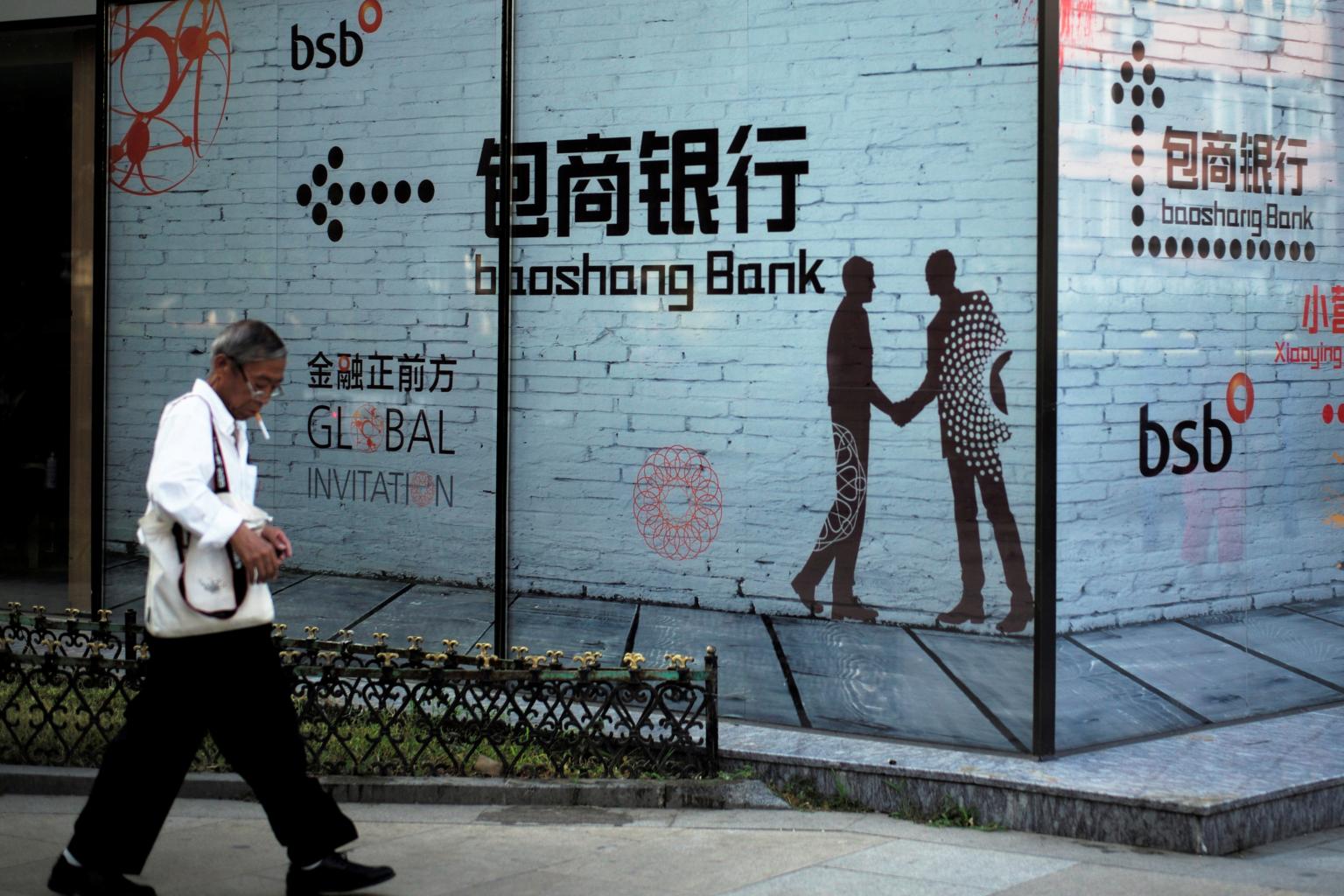China's first bank seizure in 20 years spooks investors
Sign up now: Get ST's newsletters delivered to your inbox

Chinese regulators assumed control of Baoshang Bank Co, citing "serious" credit risks.
PHOTO: REUTERS
Follow topic:
HONG KONG (BLOOMBERG) - The Chinese government's first seizure of a bank in more than two decades piles fresh pressure on shares of small lenders that already trade at rock-bottom valuations.
A Bloomberg index of Hong Kong-listed Chinese banks dropped to a four-month low on Monday (May 27) after regulators assumed control of Baoshang Bank Co citing "serious" credit risks. The interbank repurchase rate jumped to the highest in a month. Baoshang was part of the investment conglomerate led by financier Xiao Jianhua, known as the Tomorrow Group, which is being probed by Chinese officials, according to people familiar with the investigation.
The fall of Baoshang has its roots in the off-loan-book transactions that China's small banks use to work around rules that restrict them from lending to weak borrowers, as well as evade capital and provisioning requirements. The move will probably heighten investor concerns about the true quality of lenders' assets, what may trigger the next seizure, and how swiftly authorities will act, according to China International Capital Corp.
"We foresee visible share price pressure on city commercial banks with similar asset scale or those focusing on Baoshang Bank's neighboring regions," CICC analysts led by Victor Wang said in a note on Monday.
S&P Global warned on Monday that some aggressive small banks are "susceptible to an economic slowdown because their risk management capability can't keep up with their breakneck pace of growth."
Regional banks in China's rust-belt provinces drove the rapid expansion of non-traditional lending that peaked in early 2018 to propel profit growth. Smaller firms, who used shadow-loan instruments to diversify from their struggling home provinces, exposed themselves to a much wider spectrum of Chinese corporate risk, according to a 2017 UBS report.
Some lenders are already seeing their shares trade at distressed valuations. Heilongjiang's Harbin Bank Co. is trading at about 0.34 times book value, while Liaoning's Shengjing Bank Co. is at 0.41 times, according to data compiled by Bloomberg. That compares with the 0.7 times average price-to-book ratio at Chinese banks listed in Hong Kong.
Baoshang's bonds were suspended from trading after yields were indicated up by about 70 basis points early Monday. Overseas-traded loss-absorbing debt instruments, known as AT1s, also fell at several small Chinese banks, according to Bloomberg-compiled prices.
Bank of Qingdao Co's AT1 bonds extended the decline early Tuesday, falling 0.2 cents on the dollar after a drop of 0.7 cents on Monday, according to Bloomberg-compiled prices.
Most of the city and rural commercial banks listed in Hong Kong have declined this year, led by Bank of Gansu Co., which plunged 27 per cent, and Jilin Jiutai Rural Commercial Corp., which is down 36 per cent. The drop compares with a 1.9 per cent fall for the country's five biggest lenders.
Bank of Nanjing Co, Jiangsu Changshu Rural Commercial Bank Co, Bank of Ningbo Co and Bank of Shanghai Co, which have relatively better earnings visibility, will outperform, according to Ma Kunpeng, a Shanghai-based analyst at Shenwan Hongyuan Group Co.
"The Baoshang case will push for deeper divergence among China's smaller banks," Ma wrote in a note. "Those with core competitive advantages will stand out in the long term."

